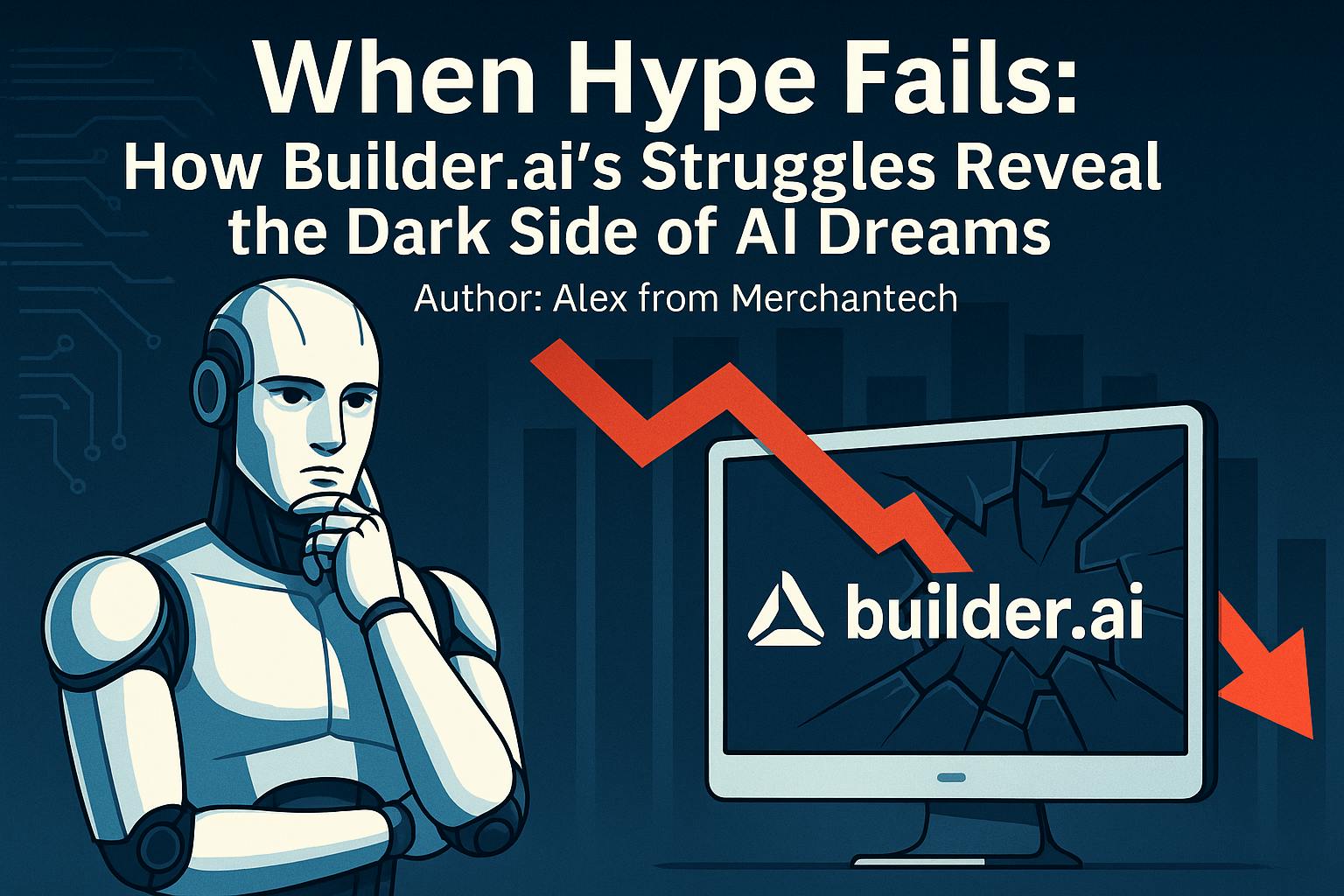Over the past few years, artificial intelligence has been Silicon Valley's golden child. From making routine tasks automated to producing hyper-personalized customer experiences, AI has been pitched as the fix for just about every business ailment. But for a few firms, the AI revolution hasn't been the gravy train it was cracked up to be—it's been an alarm call. A case in point is Builder.ai, which was once touted as a software development disruptor but now finds itself fighting for traction.
The Rise: The Promise of "Apps Without Code"
Founded in 2016 by Sachin Dev Duggal, Builder.ai set out to democratize software development by enabling businesses to build apps without having to code once. The concept was strong: leverage AI to make complicated development easier, reduce costs, and accelerate delivery. It raised $450 million across several rounds of funding, with heavyweights such as Insight Partners and the Qatar Investment Authority as investors.
By 2022, Builder.ai was on every tech watchlist. The company asserted its AI-powered platform would enable companies to develop custom applications quicker and more economically than conventional development teams. Retail, fintech, and healthcare brands were among the early adopters, driving a valuation reportedly close to $1 billion.
The Fall: When AI Becomes a Liability
But behind the scenes, cracks began to appear. Multiple reports indicate that Builder.ai’s AI was often more marketing spin than operational reality. Clients complained that the AI could not deliver truly bespoke solutions without significant human intervention, effectively turning "AI-built apps" into expensive hand-coded projects anyway.
In Q1 2024, the company terminated around 15% of its employees citing "efficiency improvements." Insiders from the company confirmed that the termination was more about finance and less about efficiency due to disappointing product performance. Technology forums such as Blind and Glassdoor filled up with feedback by disappointed workers and consumers.
Worse yet, the company's major clients jumped ship to its competitors, Bubble.io and OutSystems, platforms that, although less hyped for their AI features, yielded more consistent results. The no-code AI utopia began to crumble, and Builder.ai was forced to confront an unpleasant reality: customers don't pay attention to buzzwords—they pay attention to results.
Why Did Builder.ai Fail to Deliver?
1.Overpromise, Under-Deliver: The AI was not as highly developed as hyped. Automation was restricted to simple components, with advanced features still needing to be coded manually.
2.Poor Product-Market Fit: Most SMBs did not have the technical expertise to even utilize Builder.ai efficiently, whereas larger companies opted for full-stack development teams.
3.The AI Hype Bubble: Investors and media over-hyped expectations, loading extremely high pressure on the company to demonstrate instantaneous growth, often at the cost of real innovation.
A Wider Industry Takeaway
Builder.ai is not unique. We've witnessed the same issues with AI-driven businesses in areas such as legal tech, recruitment using AI, and even AI content tooling which does not live up to user expectations.
It prompts a critical question: Are we living in an AI bubble? The answer is complex. AI is indeed revolutionary, but much of what is currently being implemented is exaggerated MVPs dressed up as complete products.
What Can Business Take Away?
Expect AI to Deliver: Not all AI-based solutions bring significant value. Judge technology on results, not buzzwords.
Incremental Progress Over Hype: Real change occurs gradually. Investing in hype without substance is a recipe for disappointment.
Transparency Pays: Businesses that are truthful about what AI can and cannot do create long-term credibility.
The Road Ahead for Builder.ai
In spite of its struggles, Builder.ai isn't out of the game. There have been recent reports that the company has turned its attention to smaller, niche markets where less complex applications are in greater demand. They are also said to be considering collaborations with established SaaS players to embed Builder.ai into established ecosystems.
But until the company is able to align its marketing message with the true capabilities of its technology, its fate is anything but certain.
Final Thought
The collapse of Builder.ai is a cautionary warning to the entire tech world: AI isn't sufficient alone. Without practical application, scalable technology, and realistic vision, even the most cash-flush startups will fail.
In the battle for AI dominance, the victors won't be those who yell the loudest—the winners will be those who produce real, tangible value.


